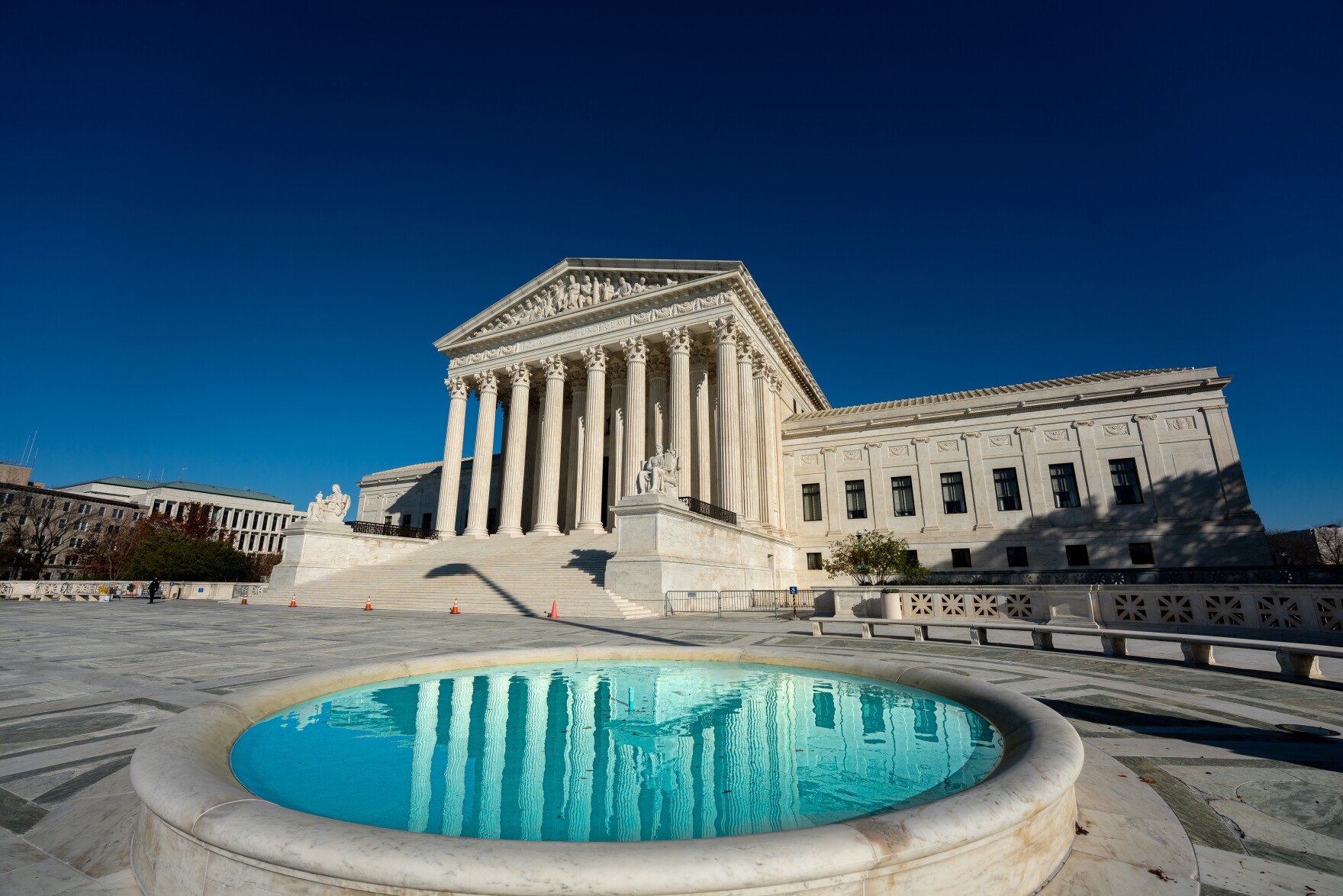
- Details
- By Darren Thompson
On Thursday, the United States Supreme Court ruled in Carlos Vega v. Terence B. Tekoh that a plaintiff may not sue a police officer for obtaining an improper admission of an “un-Mirandized” statement used in a criminal prosecution. The ruling does not impact the exclusion of evidence obtained without the Miranda warning for a criminal trial.
“Because a violation of Miranda is not itself a violation of the Fifth Amendment, and because we see no justification for expanding Miranda to confer a right to sue under Section 1983, the judgment of the Court of Appeals is reversed, and the case is remanded for further proceedings consistent with this opinion,” wrote Justice Alito, who delivered the opinion of the Supreme Court on Thursday, June 23.
The case involves Terence Tekoh, a hospital worker in Los Angeles who was accused of sexually assaulting a patient at a hospital in 2014, and Carlos Vega, a Los Angeles County sheriff deputy who questioned Tekoh. Tekoh’s attorneys argued Vega used aggressive techniques to get Tekoh to confess. Vega’s attorneys said that the confession was consensual and voluntary and he wasn’t in custody at the time of the confession.
Tekoh was tried and acquitted, even with a confession at his trial. He later sued Vega under Section 1983, a federal law that allows suits for damages against government misconduct when a person’s constitutional rights were violated.
The ruling affects Miranda because it prohibits those wrongfully prosecuted from obtaining damages, even if their rights were violated. It leaves victims without recourse for government misconduct.
Miranda rights don’t apply on some Tribal lands, however, because Tribal courts do not require Miranda. Some Tribes require Miranda, through their own rules and regulations, but it’s unclear how many do.
“The protections provided to Indians in Tribal Courts are outlined in the Indian Civil Rights Act and each Tribal Nation’s constitution,” said Danielle Finn, Associate Judge for the Cheyenne River Sioux Tribe to Native News Online. “Therefore, each Tribe has different rights provided and some may and some may not be ‘mirandizing’.”
There is no known number of Tribes who give or do not give Miranda rights, but many do because it is consistent with their training. The Indian Civil Rights Act requires Tribes to provide an attorney for a defendant facing charges that could bring a year or more in jail. Tribal courts are less-adversarial than state or federal courts.
The decision to limit Miranda rights does apply off Tribal lands, though, and government misconduct is no longer under the same scrutiny.
More Stories Like This
Native News Weekly (August 25, 2024): D.C. BriefsUS Presidents in Their Own Words Concerning American Indians
Oral History Project Announces 14th Stop in Portland, Oregon: NABS Continues to Gather Crucial Stories Across Indian Country
Native News Weekly (November 2, 2025): D.C. Briefs
Time to Fall Back: Turn Clocks Back for Sunday Time Change
Help us tell the stories that could save Native languages and food traditions
At a critical moment for Indian Country, Native News Online is embarking on our most ambitious reporting project yet: "Cultivating Culture," a three-year investigation into two forces shaping Native community survival—food sovereignty and language revitalization.
The devastating impact of COVID-19 accelerated the loss of Native elders and with them, irreplaceable cultural knowledge. Yet across tribal communities, innovative leaders are fighting back, reclaiming traditional food systems and breathing new life into Native languages. These aren't just cultural preservation efforts—they're powerful pathways to community health, healing, and resilience.
Our dedicated reporting team will spend three years documenting these stories through on-the-ground reporting in 18 tribal communities, producing over 200 in-depth stories, 18 podcast episodes, and multimedia content that amplifies Indigenous voices. We'll show policymakers, funders, and allies how cultural restoration directly impacts physical and mental wellness while celebrating successful models of sovereignty and self-determination.
This isn't corporate media parachuting into Indian Country for a quick story. This is sustained, relationship-based journalism by Native reporters who understand these communities. It's "Warrior Journalism"—fearless reporting that serves the 5.5 million readers who depend on us for news that mainstream media often ignores.
We need your help right now. While we've secured partial funding, we're still $450,000 short of our three-year budget. Our immediate goal is $25,000 this month to keep this critical work moving forward—funding reporter salaries, travel to remote communities, photography, and the deep reporting these stories deserve.
Every dollar directly supports Indigenous journalists telling Indigenous stories. Whether it's $5 or $50, your contribution ensures these vital narratives of resilience, innovation, and hope don't disappear into silence.
 The stakes couldn't be higher. Native languages are being lost at an alarming rate. Food insecurity plagues many tribal communities. But solutions are emerging, and these stories need to be told.
The stakes couldn't be higher. Native languages are being lost at an alarming rate. Food insecurity plagues many tribal communities. But solutions are emerging, and these stories need to be told.
Support independent Native journalism. Fund the stories that matter.
Levi Rickert (Potawatomi), Editor & Publisher
